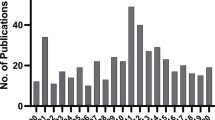Abstract
Human behavior understanding is of great importance for a variety of applications, such as personalized recommendations, smart home, urban planning, and anti-terrorism. Although there has been significant progress on the understanding of human behaviors, we still face a number of theoretical and technical challenges that need be further explored. In this article, we first outline the basic research process of human behavior understanding based on existing studies, and illustrate important issues in each step. Afterwards we describe main research challenges from the aspects of human behavior itself, the behavior related data, as well as the modeling and evaluations, respectively. Then we identify and explore ten most important fundamental open problems in this field. The proposed problem list is expected to provoke innovative studies on human behavior understanding, e.g., theory improvement and data collaboration. In this article, we also discuss possible ways that would be helpful for resolving the challenging problems.

Similar content being viewed by others
References
Chen, L., Hoey, J., Nugent, C.D., Cook, D.J., Yu, Z.: Sensor-based activity recognition. IEEE Trans. Syst. Man. Cybern. Part C 42(6), 790–808 (2012)
Barabási, A.-L.: The origin of bursts and heavy tails in human dynamics. Nature 435(7039), 207–211 (2005)
Song, C., Qu, Z., Blumm, N., Barabási, A.-L.: Limits of predictability in human mobility. Science 327(5968), 1018–1021 (2010)
Subrahmanian, V., Kumar, S.: Predicting human behavior: the next frontiers. Science 355(6324), 489–489 (2017)
Youyou, W., Kosinski, M., Stillwell, D.: Computer-based personality judgments are more accurate than those made by humans. Proc. Natl. Acad. Sci. 112(4), 1036–1040 (2015)
Kramer, A.D., Guillory, J.E., Hancock, J.T.: Experimental evidence of massive-scale emotional contagion through social networks. Proc. Natl. Acad. Sci. 111(24), 8788–8790 (2014)
Yu, Z., Du, H., Xiao, D., Wang, Z., Han, Q., Guo, B.: Recognition of human computer operations based on keystroke sensing by smartphone microphone. IEEE Int. Things J. 5(2), 1156–1168 (2018)
Du, H., Yu, Z., Yi, F., Wang, Z., Han, Q., Guo, B.: Recognition of group mobility level and group structure with mobile devices. IEEE Trans. Mob. Comput. 17(4), 884–897 (2018)
Mislove, A., Lehmann, S., Ahn, Y.-Y., Onnela, J.-P., Rosenquist, J.N.: Understanding the demographics of twitter users. ICWSM 11, 5 (2011)
Liang, Y., Zhou, X., Yu, Z., Guo, B.: Energy-efficient motion related activity recognition on mobile devices for pervasive healthcare. Mob. Netw. Appl. Spring. Press 19(3), 303–317 (2014)
Yu, Z., Yi, F., Lv, Q., Guo, B.: Identifying on-site users for social events: mobility, content, and social relationship. IEEE Trans. Mob. Comput. 17(9), 2055–2068 (2018)
Yu, Z., Wang, H., Guo, B., Gu, T., Mei, T.: Supporting serendipitous social interaction using human mobility prediction. IEEE Trans. Hum. Mach. Syst. 45(6), 811–818 (2015)
Pan, B., Zheng, Y., Wilkie, D., Shahabi, C.: Crowd sensing of traffic anomalies based on human mobility and social media. In: Proceedings of the 21st ACM SIGSPATIAL International Conference on Advances in Geographic Information Systems, ACM, pp. 344–353 (2013)
Ruths, D., Pfeffer, J.: Social media for large studies of behavior. Science 346(6213), 1063–1064 (2014)
Wang, L., Yu, Z., Guo, B., Ku, T., Yi, F.: Moving destination prediction using sparse dataset: a mobility gradient descent approach. ACM Trans. Knowl. Discov. Data 11(3), Article No. 37 (2017)
Zhang, D., Wang, H., Wu, D.: Toward centimeter-scale human activity sensing with WI-FI signals. IEEE Comput. 50(1), 48–57 (2017)
Wang, Z., Guo, B., Yu, Z., Zhou, X.: Wi-Fi CSI based behavior recognition: from signals, actions to activities. IEEE Commun. Magn. 56(5), 109–115 (2018)
Morris, M. R., Inkpen, K., Venolia, G.: Remote shopping advice: enhancing in-store shopping with social technologies. In: Proceedings of the 17th ACM Conference on Computer Supported Cooperative Work and Social Computing, ACM, pp. 662–673 (2014)
Yi, F., Yu, Z., Chen, H., Du, H., Guo, B.: Cyber-physical-social collaborative sensing: from single space to cross-space. Front. Comput. Sci. 12(4), 609–622 (2018)
von Ahn, L., Maurer, B., McMillen, C., Abraham, D., Blum, M.: reCAPTCHA: human-based character recognition via web security measures. Science 321(5895), 1465–1468 (2008)
Acknowledgements
This work was supported in part by the National Science Fund for Distinguished Young Scholars (No. 61725205), the National Basic Research Program of China (No. 2015CB352400), and the National Natural Science Foundation of China (Nos. 61332005, 61772428).
Author information
Authors and Affiliations
Corresponding author
Rights and permissions
About this article
Cite this article
Yu, Z., Du, H., Yi, F. et al. Ten scientific problems in human behavior understanding. CCF Trans. Pervasive Comp. Interact. 1, 3–9 (2019). https://doi.org/10.1007/s42486-018-00003-w
Received:
Accepted:
Published:
Issue Date:
DOI: https://doi.org/10.1007/s42486-018-00003-w




